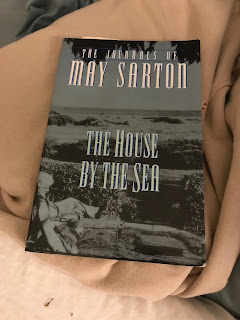"The news in those days was full of war and migrants and nativists, and it was full of fracturing too, of regions pulling away from nations, and cities pulling away from hinterlands, and it seemed that as everyone was coming together everyone was also moving apart." from Exit West by Mohsin Hamid
Last year when I read the review of Mohsin Hamid’s Exit West in the New York Times Book Review, I decided against reading it for two reasons: I couldn’t imagine how a story about the refugee crisis in our world wouldn’t be depressing; and I found the idea of the magic exit doors to be a little off-putting. Sometimes I enjoy magical realism, but I was skeptical about combining it with the serious, sobering issue of the refugee crisis. When the book showed back up recently in The Morning News Tournament of Books, I decided to give it a try, and I am so glad that I did.
I can understand why this book isn’t for everyone. It is not a deep, heavy treatise on the refugee crisis, but I don’t think it’s any less serious for its lack of depth. I found it to be a quick read, but one that nonetheless made me think deeply. The use of the doors worked well to reinforce the important point of how vastly different standards of living are with just a change in geography, but also of how nearly the same people are everywhere. People in Britain and America might have reliable access to electricity, clean water, cars, food, and safety, but they are not immune to the xenophobic herd mentality that plagues people everywhere. In fact, easy access to comfort and riches seems to make one more susceptible to isolationism. When you choose to look askance at the young men who join any kind of gang or militia, look around at how much this kind of assimilation happens everywhere (only the details are different), especially when family and society break down and leave people feeling alone and unsupported. Saeed and Nadia have fled a broken society where a militia has taken over and wreaked havoc, only to end up in London where “nativist provocateurs” threaten violence, and refugees under threat then retreat into factions of “their own kind.” Safety in numbers; comfort in sameness….this is common to us all. Whether you believe in a god or not, I think a lot of us would benefit from being more aware of the sentiment behind the phrase, “There but for the grace of god go I.”




No comments:
Post a Comment